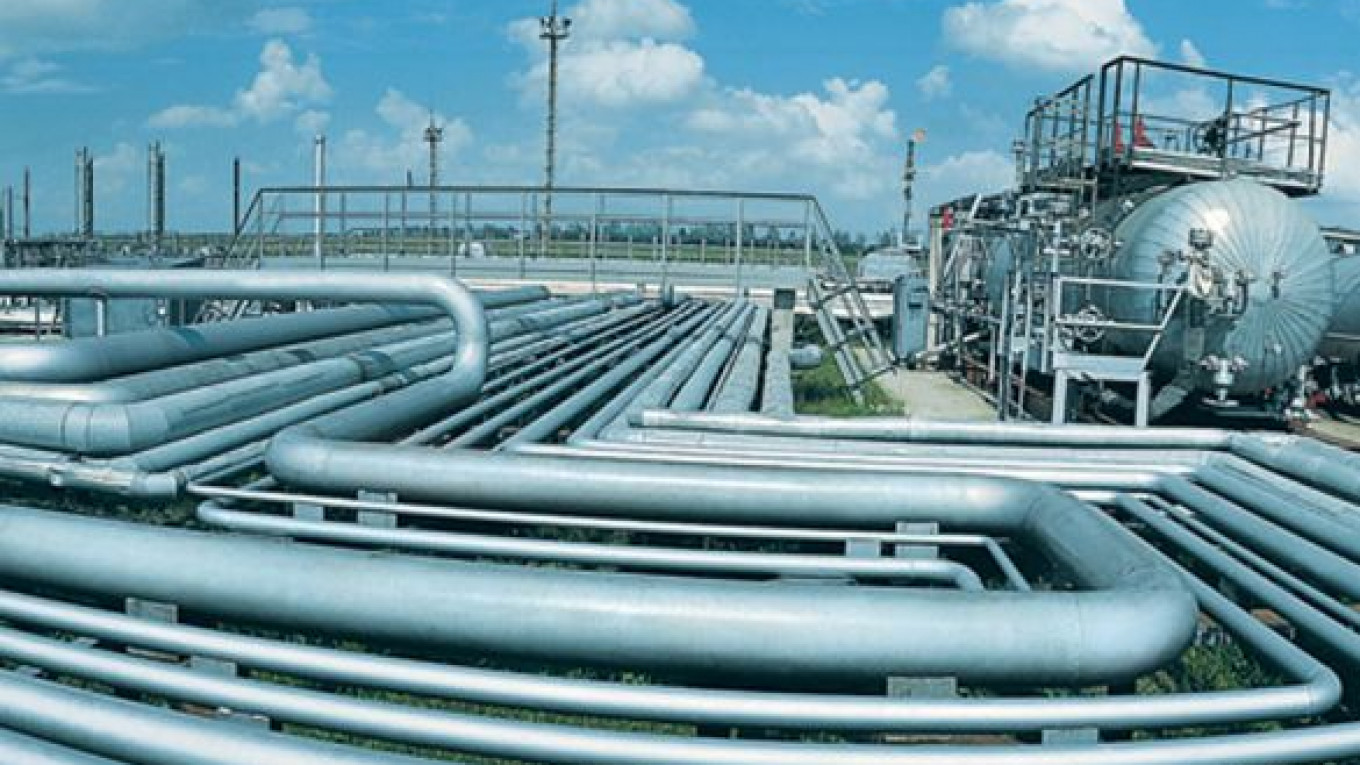President Vladimir Putin will discuss natural-gas supplies during a visit to Ukraine amid disagreements between the neighbors similar to those that have previously disrupted deliveries to the European Union.
Putin and his Ukrainian counterpart, Viktor Yanukovych, meeting Thursday in the Black Sea resort of Yalta, plan to review energy ties as the countries prepare a new accord to expand cooperation in the gas industry, the Kremlin said Wednesday.
While as many as 12 documents will be signed, including an accord on nuclear energy, no agreements on gas are planned, said Yuri Ushakov, who advises Putin on foreign policy.
Gazprom chief executive Alexei Miller will also travel as part of the delegation, he said.
Yanukovych has refused International Monetary Fund demands to raise natural-gas tariffs for households to stem losses at state energy company NAK Naftogaz Ukrainy.
The former Soviet republic is seeking a discount on its existing 10-year gas-supply agreement with Russia, which Yanukovych calls "very unfair."
Gazprom made a $2 billion advance payment for transit of gas to the EU last month to help Ukraine buy the fuel for storage.
Ukraine, which relies on Russia for more than 70 percent of its gas and serves as a transit route to supply EU buyers, has sought to cut purchases to 27 billion cubic meters this year. It has also argued that the price it pays is too high.
Gazprom has said lowering volumes would violate the contract signed after a price dispute led Russia to cut supplies to Ukraine for almost three weeks in January 2009, disrupting EU exports.
The Moscow-based gas exporter is concerned about the amount of gas in Ukraine's storage and the speed with which it is being pumped.
Gazprom is urging NAK Naftogaz Ukrainy to ensure sufficient volumes in its facilities ahead of peak consumption in winter, Miller said on June 29.
The contract requires Naftogaz to buy at least 80 percent from the annual contracted volume of 52 billion cubic meters.
Putin and Yanukovych may also discuss Ukraine's jailed opposition leader, Yulia Tymoshenko, as they "touch upon any issues, including the most sensitive ones," Ushakov said.
Tymoshenko was found guilty last year of overstepping her authority as prime minister when signing the 2009 gas deal with Russia.
She says the case was engineered by Yanukovych to silence opposition before parliamentary elections in October. The EU, the United States and Russia have condemned her conviction.
State-owned Russian Railways has opened negotiations to relocate a section of the Russo-Ukrainian border and ease access to a strip of track officially under its jurisdiction.
The section of track, along the South-Eastern and North-Caucasus route operated by Russian Railways, lies on the boundary of Russia's Rostovskii and Ukraine's Luganskii regions. It intersects the current national border several times along its 30-kilometer path.
The company has appealed to the Russo-Ukrainian Demarcation Commission to change the border so that the strip would be located entirely in Russian territory. Talks between the two governments have already begun, RBK Daily reported, citing an annual statement released by the company.
Sergei Mikheyev, the general director of the Center for Current Politics, said a fair deal would be necessary to make Ukraine acquiesce. "The idea itself looks like a fantasy, so it's unlikely Ukraine will agree," he said.
Since the collapse of the Soviet Union, territorial disputes between the two countries have been ongoing. In 2003, strong protests from Ukraine led to the construction by Russia of a dam between the Krasnodarsk region and the Ukrainian island of Tuzla.
A Message from The Moscow Times:
Dear readers,
We are facing unprecedented challenges. Russia's Prosecutor General's Office has designated The Moscow Times as an "undesirable" organization, criminalizing our work and putting our staff at risk of prosecution. This follows our earlier unjust labeling as a "foreign agent."
These actions are direct attempts to silence independent journalism in Russia. The authorities claim our work "discredits the decisions of the Russian leadership." We see things differently: we strive to provide accurate, unbiased reporting on Russia.
We, the journalists of The Moscow Times, refuse to be silenced. But to continue our work, we need your help.
Your support, no matter how small, makes a world of difference. If you can, please support us monthly starting from just $2. It's quick to set up, and every contribution makes a significant impact.
By supporting The Moscow Times, you're defending open, independent journalism in the face of repression. Thank you for standing with us.
Remind me later.






